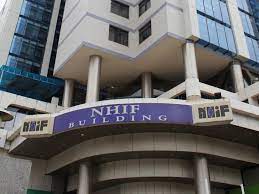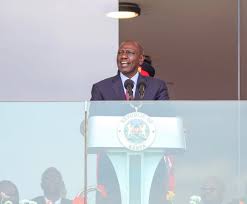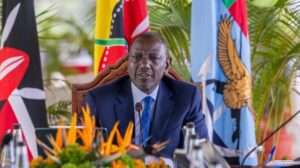
NAIROBI, DEC 13 – President William Ruto has proposed a new path in tackling healthcare challenges in Kenya from curative to preventive approach. While delivering his Jamhuri Day speech, Ruto said diseases are draining households income in Kenya and driving them to financial ruin.
The head of state appeared to be largely betting on community heath promoters to actualize his plan to forge a path of preventive care as opposed to curative, which has taken root in healthcare in the country for long.
Economic prosperity and healthcare
“Economic productivity and general well-being are significantly hampered by a population that is prone to ill-health. Individual and family medical expenditure drains households income and erodes family savings in many cases leading to financial ruin and destitution,” Ruto said.
Ruto thanked members of parliament for enacting laws governing delivery of health services which gave birth to community health promoter’s work of going door-to-door to monitor and deliver health services to Kenyans.
“Our universal health coverage plan seeks a paradigm shift in the provision of health care from curative to a largely preventive and promotive approach. Our transformation plan has seen the enactment of four acts of parliament which I thank the legislature as well as the roll out of 100,000 community health promoters for which I thank all county governments for participating,” he said.
The head of state further thanked counties that have paid community health promoters and promised that the national government will pay its contribution at the end of December.
Chronic and Critical diseases

While chronic diseases like cancer, diabetes and hypertension were not fully covered by National Health Insurance Fund (NHIF), the president said that the new Social Insurance Fund (SHIF) will cater for it.
“The laws we have enacted provides a framework in the emergency, chronic and critical illness fund that will liberate the people of Kenya from burden of catastrophic hospital bill in the treatment of conditions like cancer, diabetes and other critical and chronic conditions,” he said.
Reduction in contribution and paying for the vulnerable
Many Kenyans had for years paid a minimum of Ksh500 monthly contribution to NHIF but according to the new funding model, Kenyans who are currently paying Ksh500 to NHIF will have their contribution reduced to Ksh200.
Additionally, the government seeks to pay hospital bills to vulnerable Kenyans whose financial muscle cannot lift the cost of healthcare.
“A new funding model that is fair, equitable and safe will see the government of Kenya, for the first time pay the cost of health insurance for all the vulnerable Kenyans who have no ability to pay,” he said.
He continued, “Those currently paying Ksh500 will have their contribution reduced with the least paying Ksh300 to enhance efficiency and eliminate pilferage in the healthcare system. The new digital law will underpin the digitization of the entire health service delivery framework,” the head of state declared.







